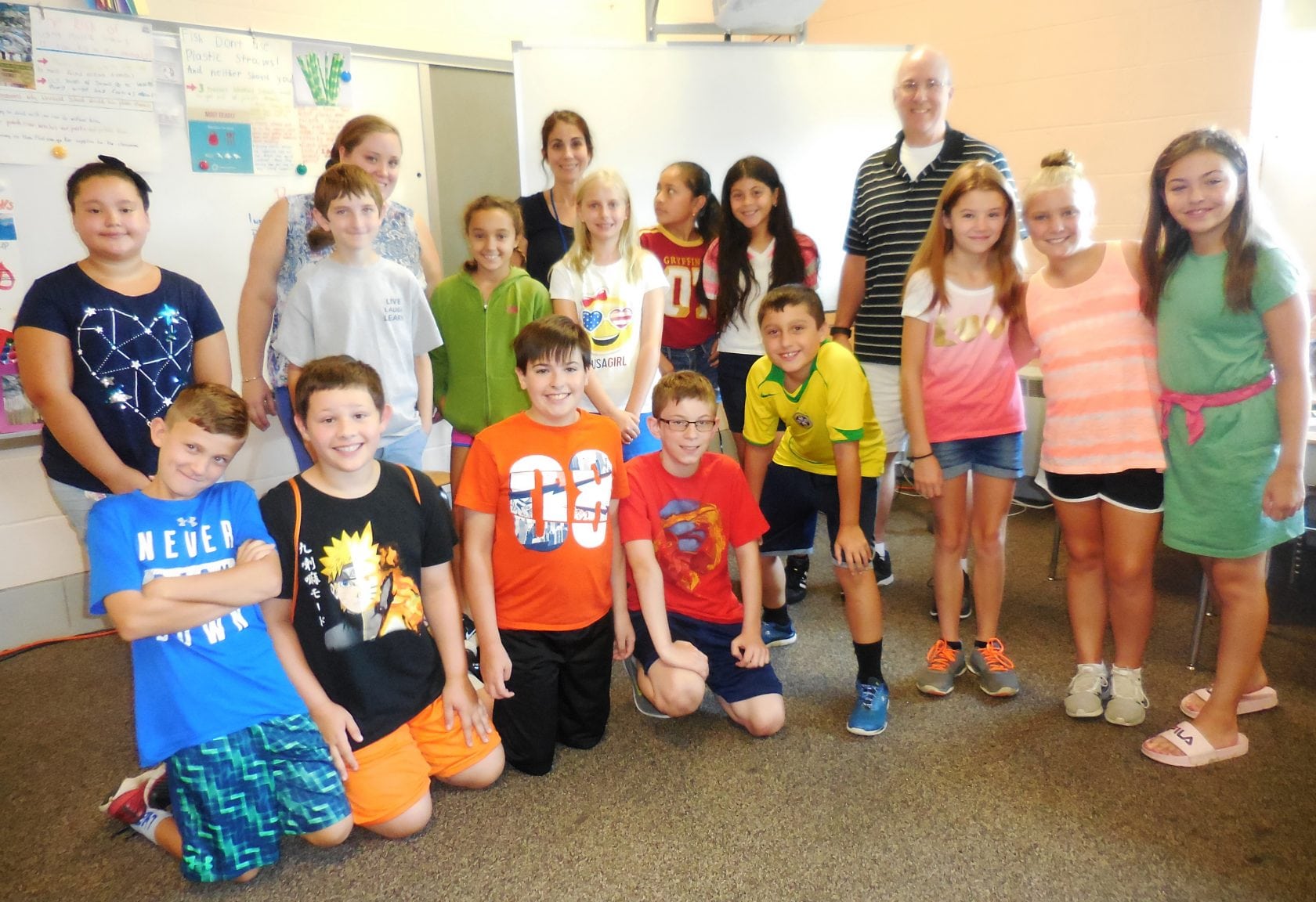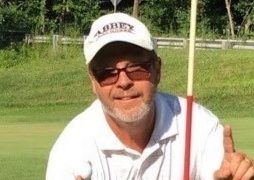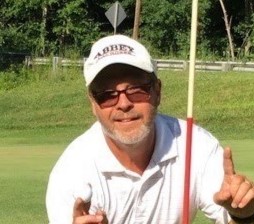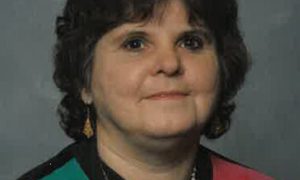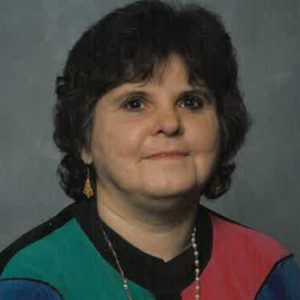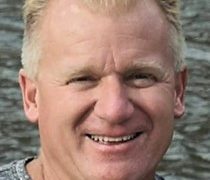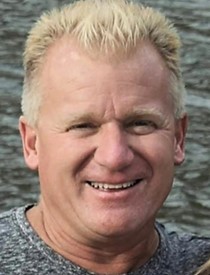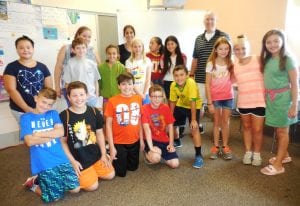
Summer EdVenture fifth and sixth grade students and teachers studied the harmful effects of plastic straws on the environment. (Photos by Amy Porter)
WESTFIELD – For their community service learning project, fifth and sixth graders at the Summer EdVenture at Highland Elementary wanted to do something about pollution in the environment. As a group, they decided to take on plastic straws.
“They’re very concerned about their community, and wanted to help in any way they can,” said ELL (English language learners) teacher Christine Vediveli-Peterson.
Fifth grade teacher Alex Kelleher said the group of 60 students started brainstorming. “What do we hear on the news? What are initiatives we could get into our schools?” She said they settled on an argument to eliminate plastic straws, and thought, “this is very doable, something we could do.”
Kelleher said students had four options for the project; to work on a slideshow with Google slides, create a poster, work on a video, or do math research, looking at the problem from the math point of view.
“We have a lot of students learning English, and special education students. Everyone participated and everyone took ownership. It was something everybody could do because of the options we offered, and because of what they came up with,” Vediveli-Peterson said.
“Our students figured out that Westfield uses 1,008,000 straws per year based on 5,560 students, 180 school days, and one straw per day,” said teacher Tom Blessis. He said the students computed that the six inch straws laid out would stretch 96 miles from Westfield to Boston.
On Monday, the students gave a 30-minute presentation to Superintendent Stefan Czaporowski, which included a slide presentation, a short video, and a letter they had written making their argument.
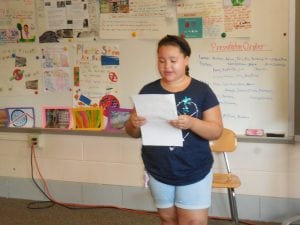
Summer EdVenture student Amaya reads a letter from the class to the Westfield Public Schools, urging a ban on plastic straws.
Amaya read the letter from the group to the superintendent. “We are writing this letter in hopes to convince Westfield Public Schools to eliminate plastic straws in our school district,” she read.
Reasons listed in the letter included: they stay in landfills forever. They affect marine and land animals and can kill them. It will reduce pollution: 14 billion pounds of pollution is dumped into the ocean every year. We don’t want to contribute to that anymore.
Another reason given to the superintendent included waste. “The money that is used for buying the straws can be used to buy more school supplies.”
In the letter, alternatives included using paper straws, having students bring their own metal straws, or “just drink our milk without one!”
“I was very impressed with the research done by our students on the use of plastic straws and the negative effects on our environment. Their arguments and passion were so compelling that our district will definitely be taking a look at alternatives to plastic straws in the future,” Superintendent Czaporowski said following the presentation.
During a classroom discussion Tuesday about their efforts, students voiced their support of the project.
“The purpose of our project is to get Westfield Public Schools to eliminate plastic straws,” said Cyler.
Adam said one of the inspirations for the project came from student Milo Cress of Vermont, who created a drive called “Be Straw Free” at age 9. Adam also referred to Starbucks’ new strawless sippy cup. The company has plans to eliminate plastic straws by 2020.
“People put a lot of trash in the ocean. Straws are listed as the number 5 pollutant,” said Johnny.
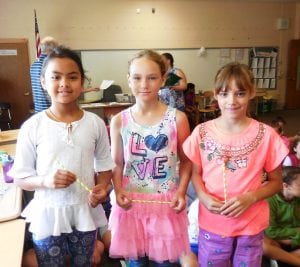
Summer EdVenture students Sania, Victoria and Vera brought paper straws from home for lunch.
Kelleher said the students made slides which were incorporated into a presentation. Photos showed straws stuck in sea turtles, and hurting other animals. “Every piece of plastic that man has made is still around,” Kelleher said.
Irelynn cited the statistic that every day, there are enough straws to wrap around the earth 2.5 times, just from the United States.
“We know that the city of Westfield banned Styrofoam, we hope they’ll ban plastic straws,” Cyler said.
Alternatives discussed included bamboo, paper, and stainless steel straws. “I would go with bamboo. It just seems right. It’s uncomfortable to have metal in your mouth,” said Adam.
“If Highland school can get rid of plastic straws, it can maybe create a chain reaction,” wondered Amaya.
“Because it can kill animals, and make animals have to go through surgery if anything bad happened to them,” said Nora.
Ciera said animals are dying because they’re eating the straws. “Ocean pollution is bad for our world. It hurts animals and people,” agreed Ari.
“There was a picture of a fish. I saw this. I love all marine animals, which are the ones getting hurt the most. It’s mostly affecting the water animals,” said Lucas.
“Straws help us drink but they don’t help our animals,” said Sianna.
Several students also came up with slogans for the campaign.
For Britney and Emi, it was “Just say no to plastic straws.”
“With over 8 million tons entering our oceans each year, it’s no secret that Plastic is not Fantastic,” said Andrew.
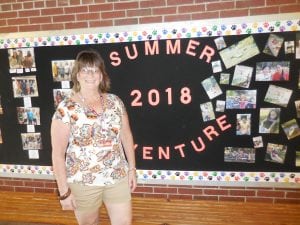
Summer EdVenture at Highland Elementary coordinator Kandy Kocol.
After sharing about their campaign, the group headed out for a pollution hunt at Stanley Park, which they can walk to from the school. Kelleher said they went two weeks ago, and collected two garbage bags full of trash. “We’re doing that again, looking for air, noise, water and land pollution. We found a lot at the ponds,” she said.
The Summer EdVenture at Highland Elementary serves grades K-6 under coordinator Kandy Kocol. The program, which is free to all students, is funded by Westfield Public Schools and CLASP, the Connected Learning and Afterschool Summer Partnership. Literacy, math, science and writing are integrated throughout the program to support project –based learning. Students in grades K-4 participated in a nature curriculum, and grade 5 and 6 students participated in the watershed and community service learning curriculum. The program ends on Thursday, Aug. 2.

